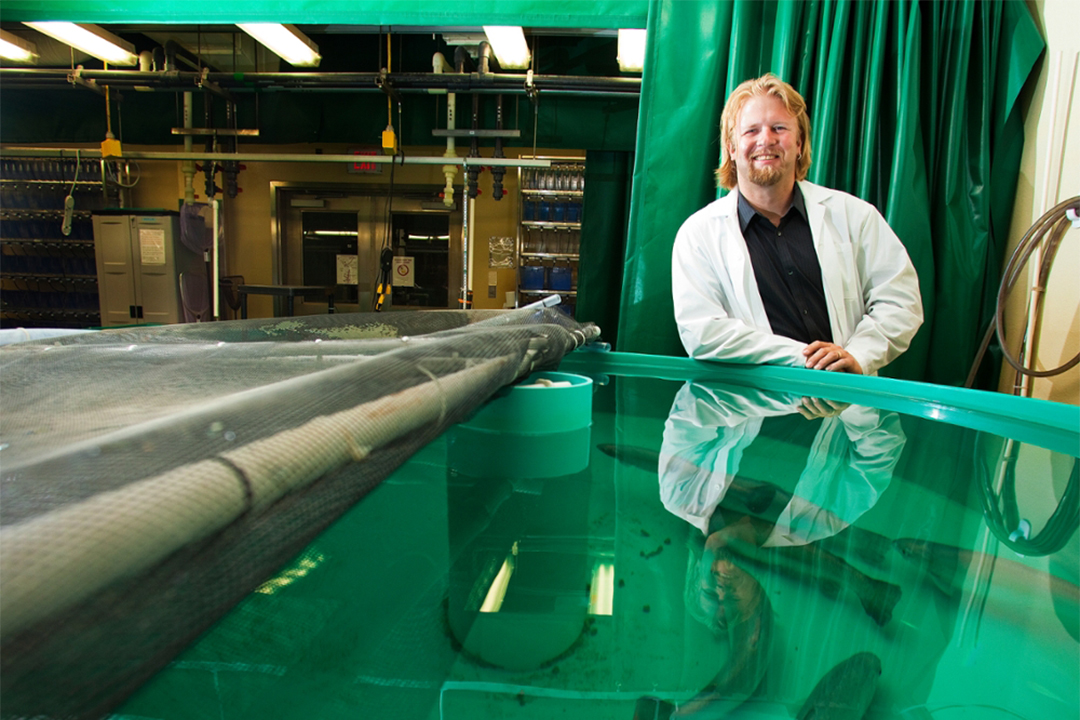
EcoToxChip aims to slash cost and time for chemical toxicity tests, save lab animals
The EcoToxChip is expected to generate huge savings in time, money and live animals in testing thousands of chemicals for toxicity. The project is being led by researchers at the University of Saskatchewan (USask), McGill University in Montreal and Environment and Climate Change Canada in Ottawa.
By Kathy FitzpatrickIn a recent article in the StarPhoenix, Markus Hecker, who teaches aquatic toxicology at USask, and is also a Canada Research Chair in Predictive Aquatic Ecotoxicology, discusses the new technology, called EcoToxChip, for testing the toxicity of chemicals – a process that could spare the majority of live animals now used for this purpose in labs.
If the chips are proven to work, they could be an invaluable tool in the testing of thousands of chemicals already in use — chemicals that, in many cases, were launched on the market decades ago, before the advent of stricter safety rules.
“Can we come up with a faster, more efficient way to screen all those chemicals to avoid 30 years of testing to finally come up with an answer?”
That’s the mission of Hecker and his research colleagues.

